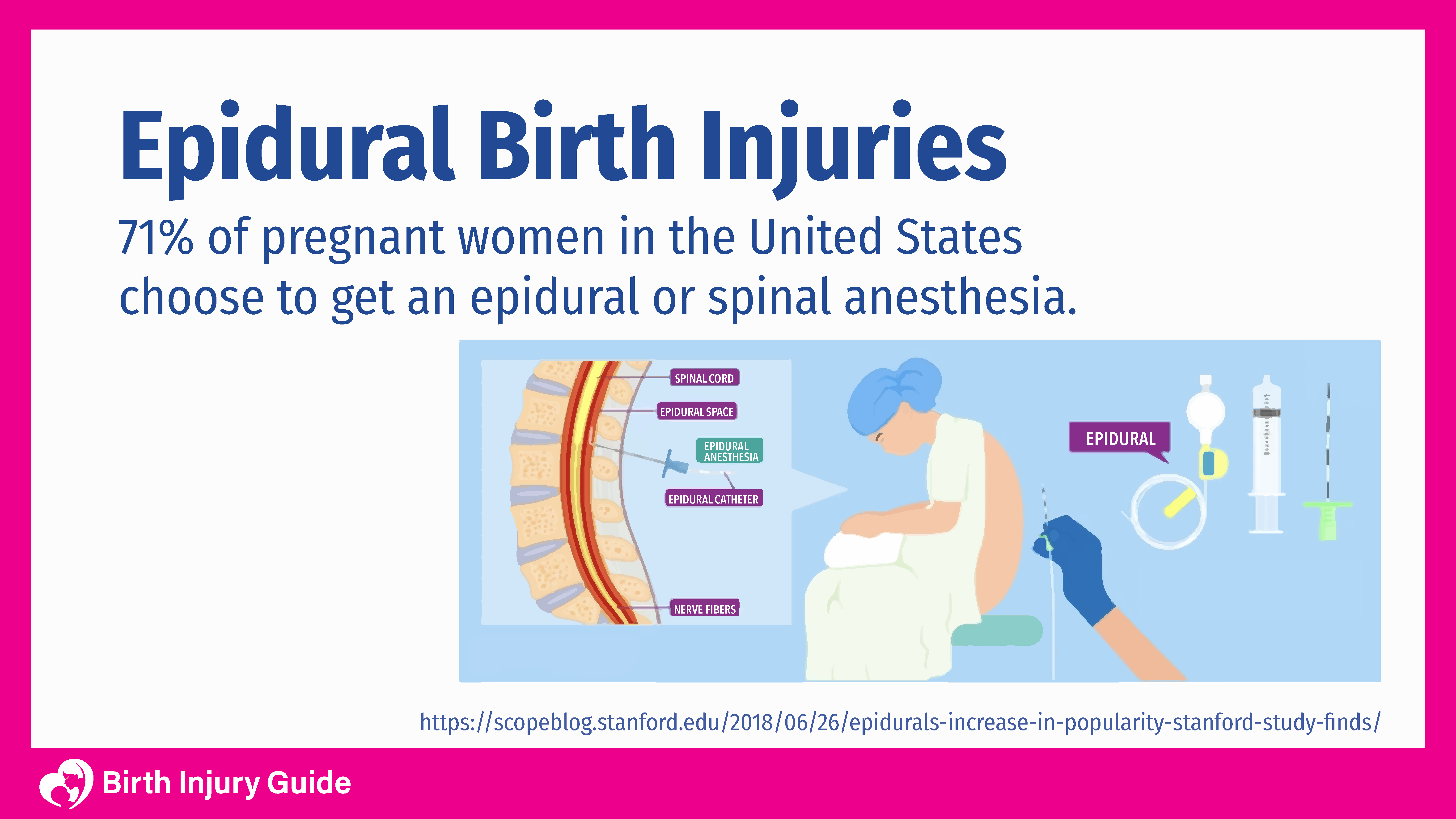
Epidural Birth Injuries
An epidural is a popular pain-management method used by millions of women each year while going through labor and delivery. In fact, an epidural is the most common type of pain relief used during labor and delivery.

Yet, despite its popularity and common use, there are a variety of risks associated with epidurals which can lead to epidural birth injuries as well as long-term maternal injuries.
What is an Epidural?
An epidural, also known as epidural anesthesia, is a regional anesthesia administered to block pain in the lower part of the body. A long needle is typically inserted into your back, around the spinal cord area, usually after the cervix has dilated to at least 4 centimeters. A thin catheter is threaded through the needle, which ensures that the medication hits the epidural area and the catheter stays in place. Once the catheter is in place, medication will be given either intermittently or continuously.
Types of Medications Used in Epidurals
Medications used as epidurals are known as local anesthetics. This means the reduction in pain sensation is targeted to a certain place only, without you being fully unaware or unfeeling of other local senses. The most common types of medications used in epidurals include:
- Bupivacaine
- Lidocaine, or
- Chloroprocaine
In the majority of instances, these medications are used in combination with narcotics or opioids to ensure maximum pain relief and to help reduce the dosage amount of the local anesthetics.
Risks Associated with Epidurals
If you’re considering an epidural, it’s important to understand the risks that come along with it, including the risk of birth injuries. In some cases, proper medical procedures still will not eliminate potential issues. In other instances, negligent and careless medical mistakes cause injuries that could have otherwise been prevented.
Maternal risks associated with epidurals include:
- Seizures and dizziness
- Infections
- Spinal membrane injuries
- Arachnoiditis
- Breathing problems
- Nerve damage
- Long-term back pain
- Increased risk of vacuum extraction or forceps use during delivery
- Lower blood pressure
Infant risks include:
- Difficulties with breastfeeding
- Oxygen deprivation, leading to more serious health problems, such as cognitive disorders and cerebral palsy
- Brain injuries
- Infant stroke
- Coma
- Low Apgar scores
- Poor muscle tone
Medical Mistakes and Epidural Birth Injuries
Administering an epidural must always be done by a professional anesthesiologist or nurse-anesthetist with proper education, experience and training. Since the area involved is so close to the spinal cord, even a small mistake can lead to devastating consequences. Typical reasons for epidural injuries due to medical mistakes include:
- Administering too much medication
- Administering medication the mother is allergic to
- Injecting the needle into the wrong area
- Failure to monitor maternal and fetal distress
- Administering the epidural before proper cervix dilation
- Administering an epidural to a mother who uses blood thinners or has a low platelet counts
Additional Information to Remember
You should always give permission before an epidural is administered. All too often, many healthcare providers make the mistake of assuming an epidural is necessary prior to getting express approval from the mother. Even when you do give permission or request an epidural, it’s the healthcare provider’s obligation to inform you of all the risks associated with the procedure. Be certain to request information on the type of medicine to be used, the risks, the complications and any other pertinent information before consenting to an epidural.
Sources:



